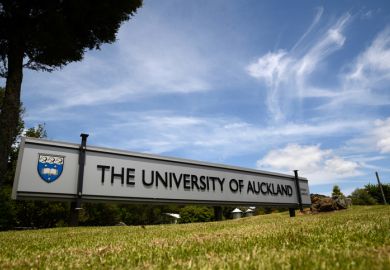The head of one of the world’s highest-ranked young universities has talked of the symbolic importance of reopening campuses after the Covid-19 lockdown in Italy.
Sabina Nuti, rector of the Sant’Anna School of Advanced Studies in Pisa, said the country’s national quarantine had been a major shock for its younger academics, many of whom were abroad when the full lockdown started in March.
“The concept that they were not free, that they had to come back home and that something was really changing their life and the way of working in universities”, was a shock, “especially for the younger students and researchers”, she said.
Keeping them connected during the lockdown had also been a challenge and “perhaps they started to think that the work they do is not relevant”, Professor Nuti told Times Higher Education’s virtual Young Universities Summit, at a panel hosted in association with Elsevier.
That was why “it was really important to open the university as soon as possible”, she added, in order to send a message that “your work is important, we believe that you can make a difference”, referring to the institution’s reopening, alongside safety measures, last month.
She said it had also been difficult to maintain research collaborations online, but her institution recognised the vital importance of keeping them “alive so that we will be ready when the frontiers will be open and the barriers are down to facilitate exchanges and teamwork”.
On a wider level, she said, she hoped that the pandemic had changed Italy’s attitude towards the need to invest in research and higher education.
“We were spending a really low amount of money on research and universities. I think that now everybody knows that the future of our country has to do a lot with how much we invest in research, and I think our young [academics] have a lot of responsibility on how we’re going to spend the money that will be invested,” Professor Nuti said.
Tian Xu, vice-president of Westlake University in China, told the same panel discussion on the impact of Covid-19 on young institutions that it wanted to “double [its] effort to collaborate” despite the pandemic.
“We truly believe that this is actually the solution to understand each other’s culture and to understand each other’s differences,” he said.
He said the emergency in China had also had a “tremendous impact on our faculty and students because it made them…feel that the purpose of research becomes very, very clear”.
Meanwhile, Kate McGrath, deputy vice-chancellor for research at the University of Technology Sydney, said she hoped that online research collaboration would enable universities “to break down hierarchical barriers”.
This was “because the digital platform is actually an equalising platform in a way that is often not the case if you have to cold call or go through any other sorts of networks”.
Another panellist in the discussion, Manel Jiménez Morales, commissioner for education and communication projects at Pompeu Fabra University in Barcelona, also said the pandemic had created “equity among universities because they had the same tools to communicate”.
Register to continue
Why register?
- Registration is free and only takes a moment
- Once registered, you can read 3 articles a month
- Sign up for our newsletter
Subscribe
Or subscribe for unlimited access to:
- Unlimited access to news, views, insights & reviews
- Digital editions
- Digital access to THE’s university and college rankings analysis
Already registered or a current subscriber? Login







